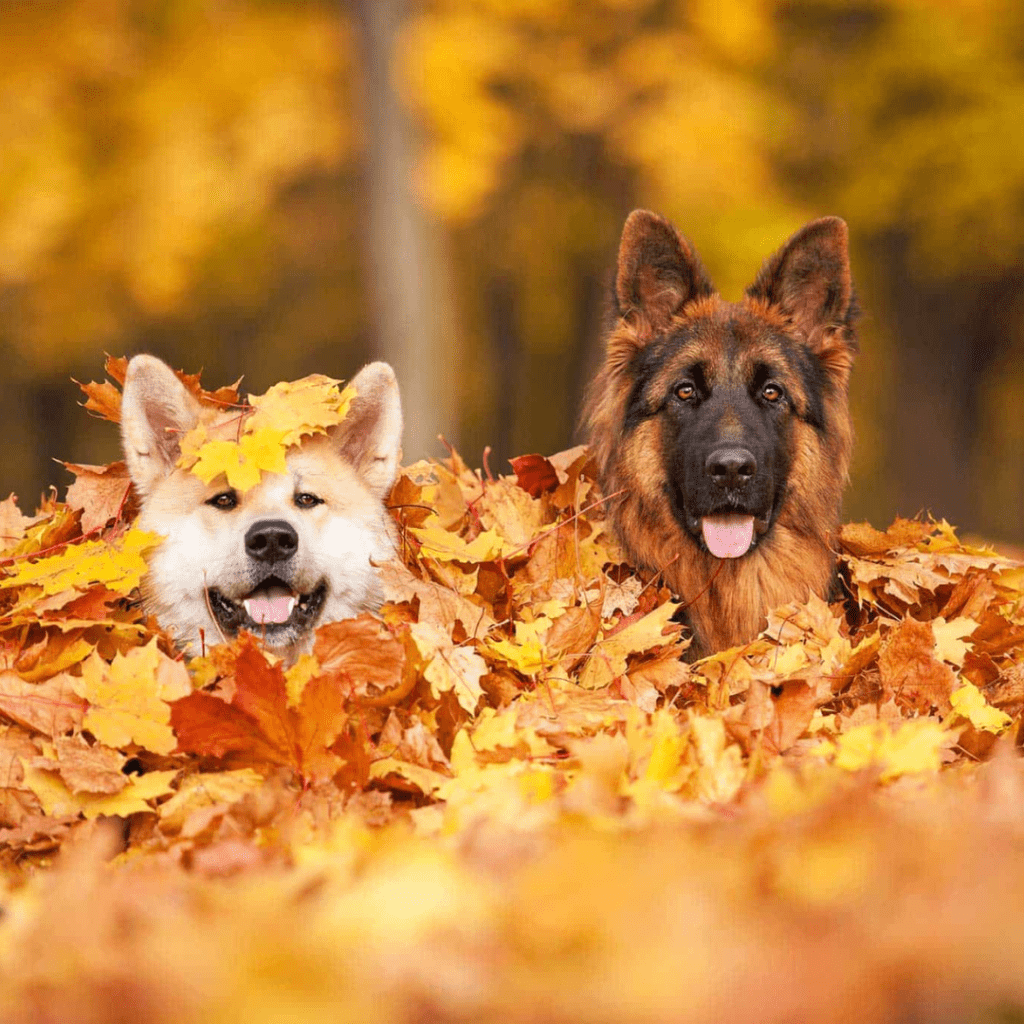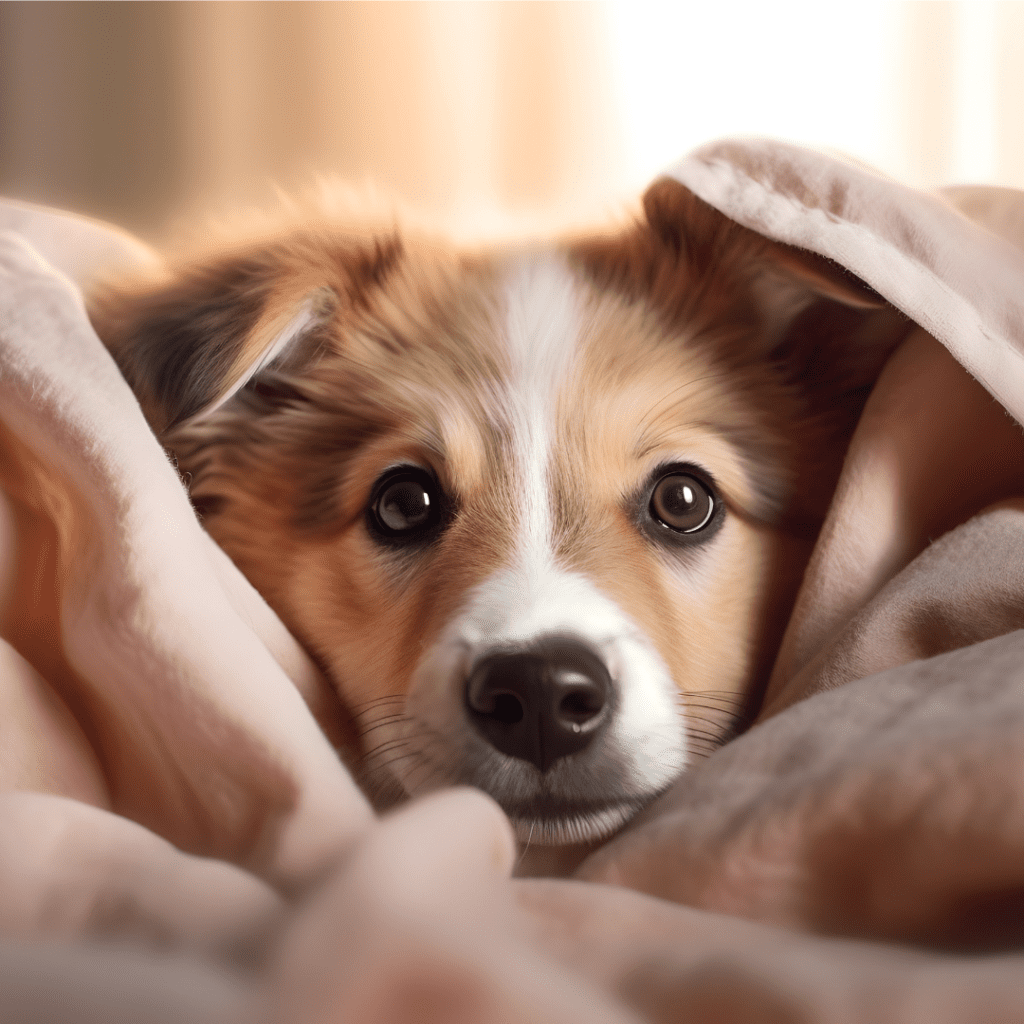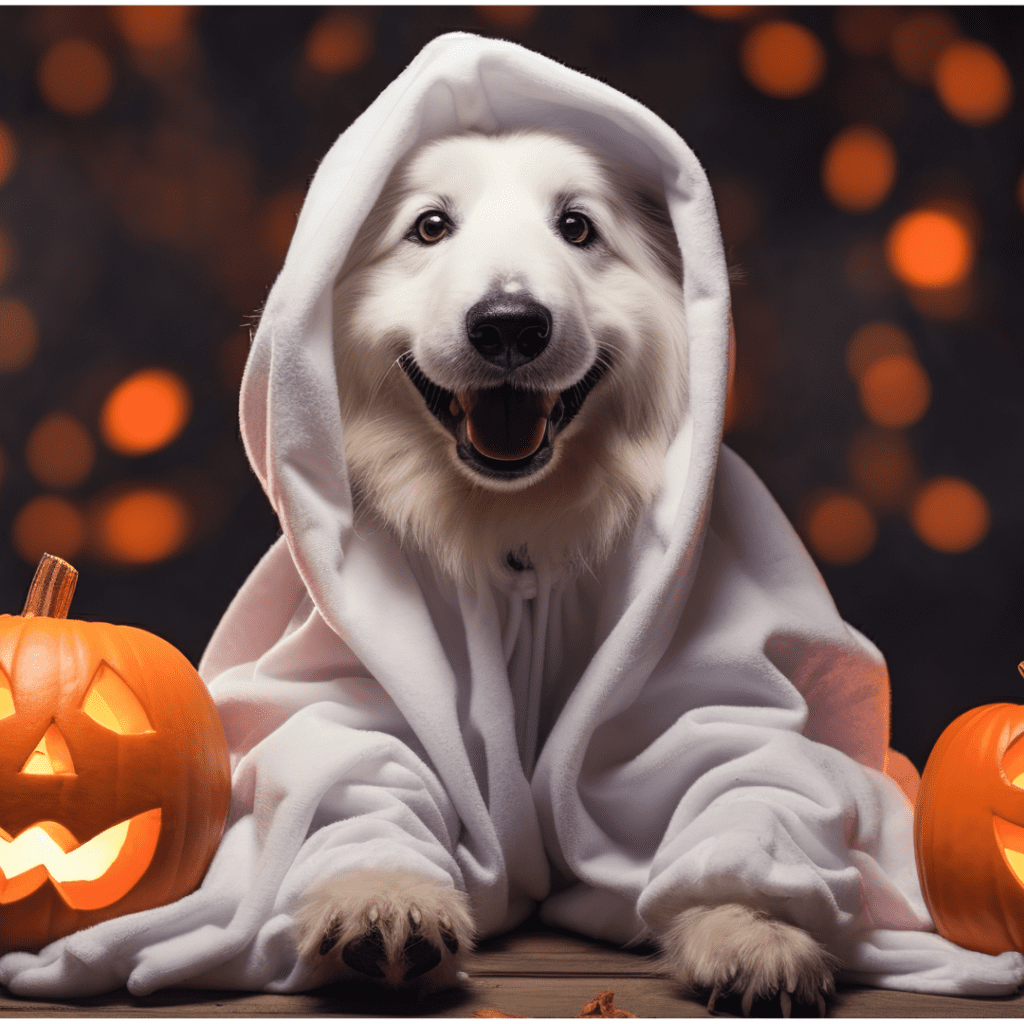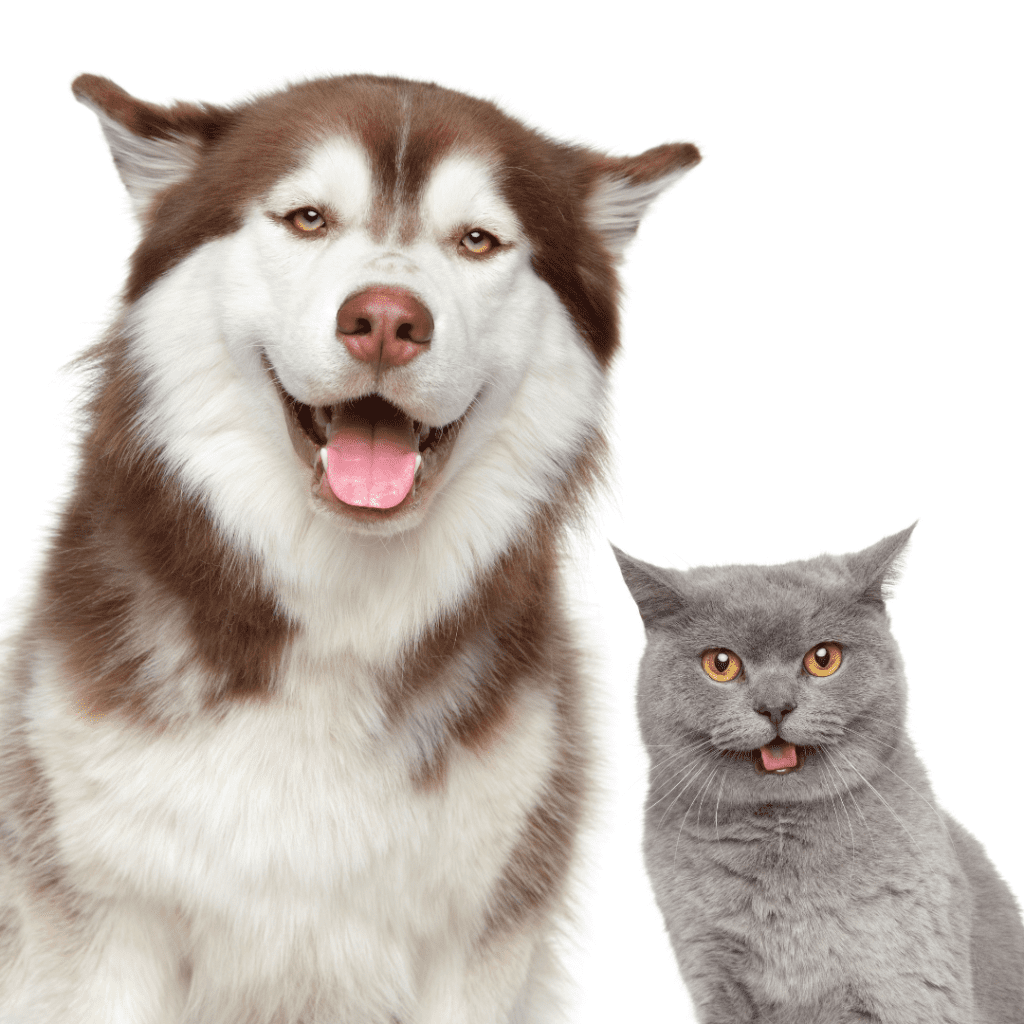The holiday season is a time of joy, celebration, and togetherness. However, it can also be a source of stress for your beloved pets. As an animal communicator, I’ve had the privilege of understanding the needs and emotions of animals despite the time of year and have helped pet owners navigate how the holidays affect them. I’m happy to share some insights on keeping your furry friends calm and happy during this festive time.
Signs of Holiday Stress in Your Pet
Animal stress can manifest in various ways, and it’s important to be attentive to these signs to address the underlying causes and provide comfort and support. Signs of stress in animals include:
- Body language changes
- Increased trembling, shivering, or shaking
- A hunched or tense body posture
- Flattened ears (in dogs) or pinned-back ears (in cats)
- Tail tucking between the legs (in dogs)
- Increased or decreased mobility (either restlessness or lethargy)
- Vocalization changes
- Excessive barking or whining (in dogs)
- Excessive meowing, hissing, or growling (in cats)
- Changes in the pitch or tone of vocalizations
- Aggression or avoidance
- Aggressive behavior, such as growling, biting, or hissing
- Attempts to escape or hide from people, other animals, or certain situations
- Destructive behavior:
- Scratching or chewing on furniture or objects
- Digging excessively (in dogs)
- Self-mutilation, such as excessive licking or biting of their own body
- Inappropriate elimination
- Urinating or defecating outside the litter box or designated area
- Appetite and digestive changes
- Changes in eating habits, such as refusing food or overeating
- Upset stomach, vomiting, or diarrhea
- Panting and drooling
- Excessive panting (in dogs) or drooling (in dogs and cats)
- Excessive Grooming
- Cats may groom themselves excessively when stressed, potentially leading to hair loss
- Change in sleep patterns
- Insomnia or excessive sleep
- Tail movement:
- Increased tail flicking or swishing (in cats)
- A puffed-up tail (in some birds and small mammals).
- Excessive salivation
- Drooling more than usual can indicate stress, especially in dogs
- Excessive vocalization
- Anxious animals might bark, meow, or whine more than usual
- Hypervigilance
- Being constantly alert, looking around anxiously
- Excessive pacing or circling
- Repeatedly moving back and forth or in circles
- Avoidance of eye contact
- Animals may avoid direct eye contact with people or other animals when stressed.
- Excessive shedding
- Stress can sometimes lead to increased shedding in pets
- Agitation and Irritability
- Restlessness and irritability can be indicative of stress
Situations That Cause Holiday Stress
Now that you know what to look out for, let’s take a look at what causes a pet to be stressed during the holidays.
- Visitors and strangers: The arrival of unfamiliar guests can be distressing for some pets. The increased foot traffic and attention can disrupt their routines and make them feel uneasy.
- Decorations: Bright, flashing, or noisy decorations such as holiday lights, tinsel, and ornaments can pique a pet’s curiosity and may lead to ingestion or play-related injuries.
- Change in routine: Pets thrive on routine, so any disruption can lead to stress. This includes changes in feeding times, walking schedules, or even just having more people around the house.
- Travel: If your pet is not accustomed to traveling, taking them on holiday trips can be a stressful experience. New environments, car rides, or flights can cause stress.
- Holiday parties: Crowded and noisy gatherings can be overwhelming for animals. Social situations with strangers, loud music, and commotion can be stress-inducing for your pet.
- Unfamiliar scents: Holiday decorations and candles can introduce new scents into the home, which might be unsettling for pets.
- Gift wrapping: Wrapping and unwrapping gifts can create an environment with unfamiliar noises and movements, which can be distressing to pets.
How To Manage Your Pet’s Holiday Stress
Here are some things you can do to ensure your pet has the least amount of holiday stress as possible:
- Maintain routine and familiarity: Your pets thrive on routine and familiarity. The hustle and bustle of the holidays can disrupt their daily schedule, leading to stress. To keep them calm, try to stick to their usual feeding, walking, and playtime routines as much as possible. If changes are necessary, make them gradual to allow your pet to adjust at their own pace.
- Create a safe haven: Provide a quiet, safe space where your pet can retreat when the holiday chaos becomes overwhelming. This sanctuary could be a separate room with their favorite toys, bed, and blankets. You may also put a piece of your clothing that has your scent on it in this space to help provide reassurance and comfort. Once you’ve established this space, it’s important to encourage family and guests to respect your pet’s need for solitude and peace.
- Be mindful of decorations: Holiday decorations can be intriguing for pets, but they can also pose risks. Keep a close eye on tinsel, ornaments, and lights that your pet might find tempting to play with. Tinsel and decorations, if ingested, can be harmful. Secure your Christmas tree and consider using a pet-friendly deterrent to discourage exploration.
- Communicate with your pet: As an animal communicator, I encourage you to communicate with your pet on an energetic level. Let them know that they are loved and safe during this time. Spend quality time with them, engage in calming activities like gentle petting, and reassure them when they seem anxious.
- Mentally stimulate them: Ensure your pet receives plenty of mental stimulation to help reduce pent-up energy and stress. Taking your dog for a long walk in a new area or providing new toys and puzzles for your cat can be effective ways to keep them engaged and content.
Holidays can be a wonderful time for you and your pets, but it’s essential to consider their well-being amidst the festivities. By maintaining their routines, creating safe spaces, and being mindful, you can help keep your furry companions calm and happy during the holidays. Remember, open communication with your pet and plenty of love and attention can make this festive season truly special for them as well.




